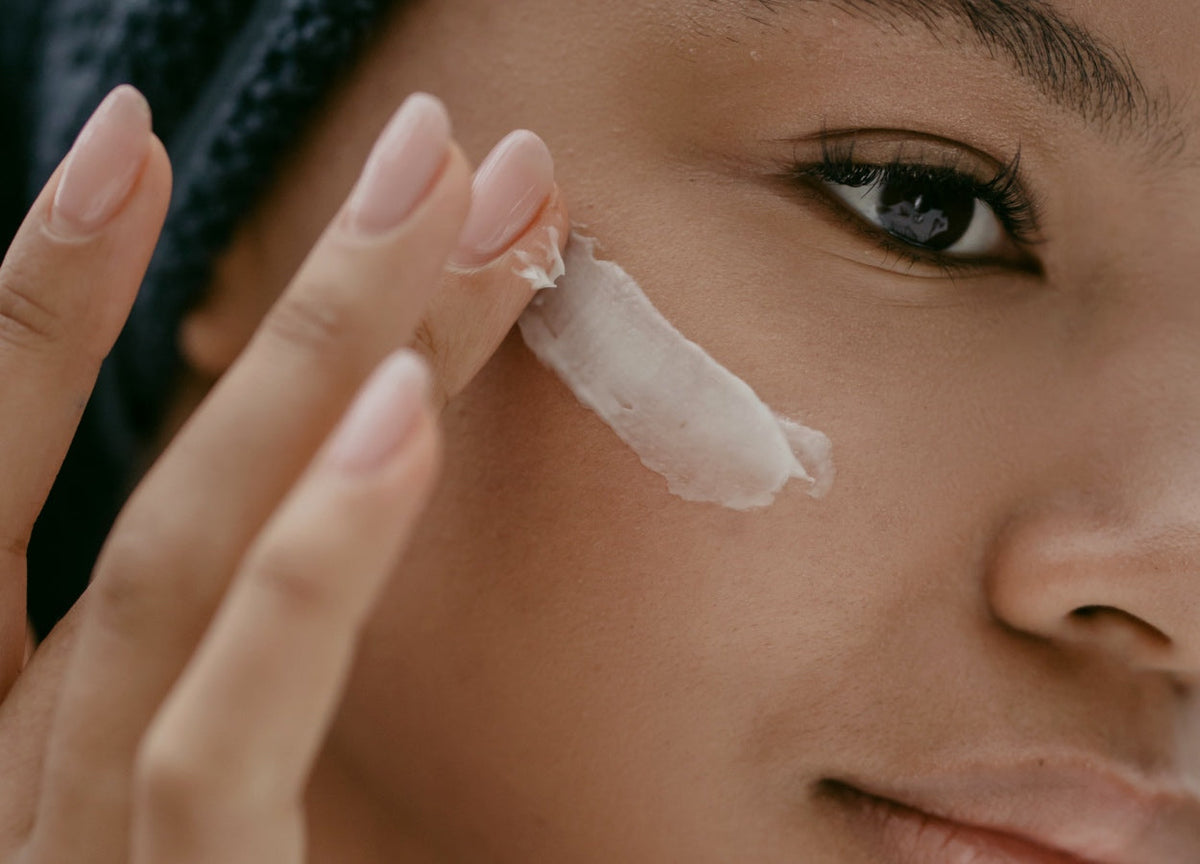
Niacinamide Serum: Your Guide to This Skin Saviour
|
|
Time to read 6 min
|
|
Time to read 6 min
If you’ve been paying attention to the world of skincare for quite some time, you’ve no doubt heard of popular players like Retinoids, Hyaluronic Acid, and Vitamin C.
Yet, one equally beneficial but completely underrated ingredient you may not know an awful lot about yet is Niacinamide — the anti-ageing skincare warrior shown to improve radiance, hydration, and youthfulness.
If you want to know more about Niacinamide serum benefits and how it can add value to your skincare ritual, this is your go-to guide.
The word “Niacinamide” may not sound too familiar, but we dare say Vitamin B3 will. Niacinamide is a type of Vitamin B3 that your body produces when you have excess niacin or through converting the amino acid tryptophan. However, when referring to skin, Niacinamide has unique benefits of its own.
Niacinamide is important in helping build keratin, a protein that supports skin health by improving strength, texture and complexion.
One of the best ways to give our skin this power-packed nutrient is, of course, Niacinamide serum or other skincare products (like moisturisers and cleansers) that contain active Niacinamide.
Niacinamide’s benefits are quite varied, giving this incredible ingredient a seemingly never-ending list of powers. From improving skin strength and protection to supporting acne-prone skin and more, here are some reasons the skincare industry cannot get enough of this game-changer:
Niacinamide has the ability to help your skin grow a ceramide barrier, subsequently improving moisture retention. As a loss of moisture in the skin is one of the leading causes of premature ageing, maintaining skin hydration is critical to keeping a youthful, healthy glow. As such, this is particularly beneficial for mature skin and those who suffer from eczema and dry skin.
In addition to offering anti-ageing benefits, moisture retention in the skin is crucial for preventing dry skin, reducing the risk of bacteria growth and irritants slipping through the lipid barrier, supporting skin regeneration, and maintaining skin elasticity.
While maintaining a healthy level of oil production in your skin is vital to achieving a youthful, glowing complexion, unfortunately, you can have too much of a good thing.
Niacinamide serum and skincare are shown to help your skin regulate the amount of oil produced by your sebaceous glands, which helps to lower the risk of having excess oil. This reduces your chances of experiencing skin irritation, clogged pores, or acne breakouts caused by excessive oil production.
Your skin is the first part of your body to come into contact with the external environment, subjecting it to oxidative stress. Oxidative stress is caused by free radicals from environmental elements, such as ultraviolet light, infrared, pollution, smoking and psychological stress. Unfortunately, prolonged exposure to oxidative stress severely impacts your skin — contributing to a loss of collagen and elastin fibres.
This expedites skin ageing, resulting in wrinkles, skin sagging, sun spots and discolouration. It also impacts initially less visible aspects of your skin’s health, including skin barrier function and moisture retention.
What does all of this have to do with Niacinamide? This incredible ingredient can help safeguard you against oxidative stress by helping to rebuild healthy skin cells while offering additional protection, like protecting your skin cells from UV damage.
In addition to helping your skin retain moisture, Niacinamide also helps minimise the appearance of hyperpigmentation, fine lines, and wrinkles.
Research has found that products containing 5% Niacinamide concentrations can effectively lighten dark spots after four weeks of use and reduce age-related sun damage and wrinkles.
One of Niacinamide’s most loved characteristics is its anti-inflammatory properties, which significantly reduce the appearance of red, blotchy skin. Combined with its hydrating and skin barrier-strengthening properties, this powerful ingredient has much to offer regarding radiance and youthfulness and should certainly not be underestimated.
Undoubtedly, its most unique benefit is its ability to improve skin brightness. Niacinamide supports cellular energy restoration, helps to repair damaged DNA, and reduces some of the harmful side effects of UV rays, all of which can lead to discoloured skin and the early onset of wrinkles. By minimising these effects, you’re left with a brighter complexion.
The fantastic thing about Niacinamide is that not only does it boast a litany of benefits, but it can also be found in a variety of different skincare products (in addition to serums), making it an easy ingredient to add to your skincare repertoire.
From serums to moisturisers and everything in between, Niacinamide can be found in the following skincare products, and thus require unique instructions for use:
At Dr Tanya Skincare, we’ve incorporated Niacinamide into several formulas owing to its undeniable benefits. If you’re looking for high-quality skincare solutions to test out the power of this ingredient for yourself, we recommend the following products:
Niacinamide application will vary from product to product; as such, there’s no one rule for how or when to apply it. While all product formulas are unique, you’ll generally find that most contain around a 5% concentration or less.
Where possible, we recommend starting cautiously with a low concentration if you’re prone to sensitivities or irritation.
Niacinamide’s benefits are powerful alone but can be even more potent when paired with the right ingredients. For example, depending on the other ingredients in your skincare products, Niacinamide can be particularly beneficial when paired with:
Yes, niacinamide and Vitamin C are compatible and can be used together to brighten skin, improve texture and reduce pigmentation.
Niacinamide enhances skin barrier function, while hyaluronic acid deeply hydrates, making them a perfect duo for plump, healthy skin.
Yes! Niacinamide complements retinol by soothing skin, reducing irritation, and enhancing overall effectiveness.
Absolutely! Niacinamide calms skin and reduces redness, while salicylic acid clears pores, making them ideal for acne-prone skin.
Using these together helps target ageing and uneven skin tone while minimising dryness or irritation.



